
Avoid falling into the hole
If you’re already feeling down, check yourself before scrolling through your Facebook or Twitter feeds. “Social media can be a swamp of self-pity,” says April Masini, a New York-based relationship expert. “For instance, if you’re not sure of your relationship, it’s easy to come close to stalking a love interest online and hyper-analyze all of his or her relationships via social media.” No matter what you’re down about, adds Masini, there’s always grass that’s “greener” right on any one of your social media pages. “So, if you’re down at all, chances are social media can make you feel like you’re at the bottom of the barrel because so many people are on there showing off their family vacation, new car, or fabulous date. If you’re feeling blue, prepare to go a shade darker.” In other words, go do something else—treat yourself to a movie, browse a bookstore, or even take a mini vacation—until you’re ready to face the social media world again. Need inspiration? This is what your social media really says about you.

Take a WiFi-free vacation. Literally
“I love traveling abroad, because during the day, I don’t have easy access to WiFi, so I’m forced to enjoy my trip and the people around me,” says Samantha R. Strazanac, who runs a North Carolina-based marketing firm. “Once I return to my hotel and can access my social media, my happiness diminishes because I often feel sad when scrolling through my media feed. It puts a damper on my mood.” Even if you can’t afford to jet off to Europe, try leaving your phone behind the next time you take a walk. “You’ll appreciate the birds tweeting again and forget about the ‘tweets’ on Twitter that can be pretty negative,” she says.

Seek professional help
Wendy O’Connor, PhD, a Los Angeles-based therapist, believes it’s a smart idea to seek help if you really cannot disconnect from social media. “Social Media can be wonderful. However, when your basic life tasks and interactions are interrupted that is a sure sign you are headed down a toxic road,” she says. Seek out professional help from someone who specializes in technology addiction or cyber education and find out how to shift the toxicity to empowerment. “When you find yourself emotionally drained from trolling or stalking social media, stop,” adds O’Connor. “Technology addiction is real, but it can be treated.” Here are weird negative effects social media has on your brain.
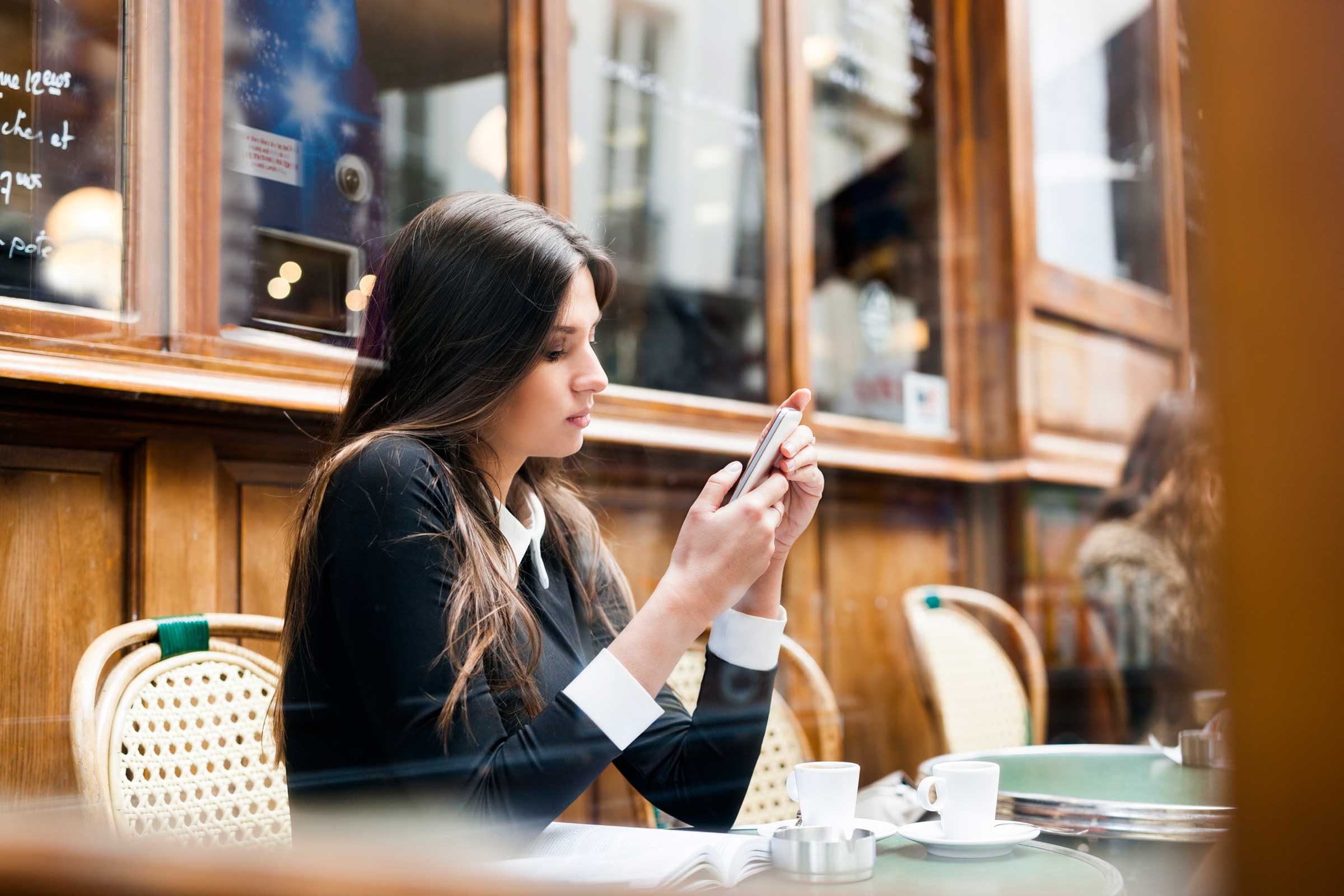
Recognize your isolation
“While technology can provide a nice escape from life stressors, with Netflix binges and Instagram surfing, our attachment to technology can also breed isolation,” says Chinwe Williams, PhD, a licensed professional counselor and associate professor at Argosy University. “A study conducted by the University of Missouri Columbia found that that increased social media use negatively impacts real-time romantic relationships.” Imagine going on a date and your partner is constantly checking their phone and not paying attention to anything you’re saying. Chances are, you won’t be too happy with that person. Extend that same “phone down” courtesy to someone else, whether you’re on a romantic date or enjoying (person-to-person) laughs with friends. Keep your phone in your bag, and really live in the moment.

Remember that life is short
Do you want to look back on your life and say, “I wish I spent more time with my cell phone”? Probably not. Remember, life is too short to obsess over Facebook or Instagram, as fun as those social media sites may be. Use your pockets of spare time to call a friend or visit a relative or friend you haven’t seen in a while—in person, that is! Your brain is probably aching for some actual, screen-free conversation. “Taking a break from technology is a great way to give your brain some much needed down time allowing creativity to flow in,” says Dr. Williams. “Intentional disengagement with your smart phone may lead to intentional and meaningful engagement with others. Break up with your phone, not your friends.”
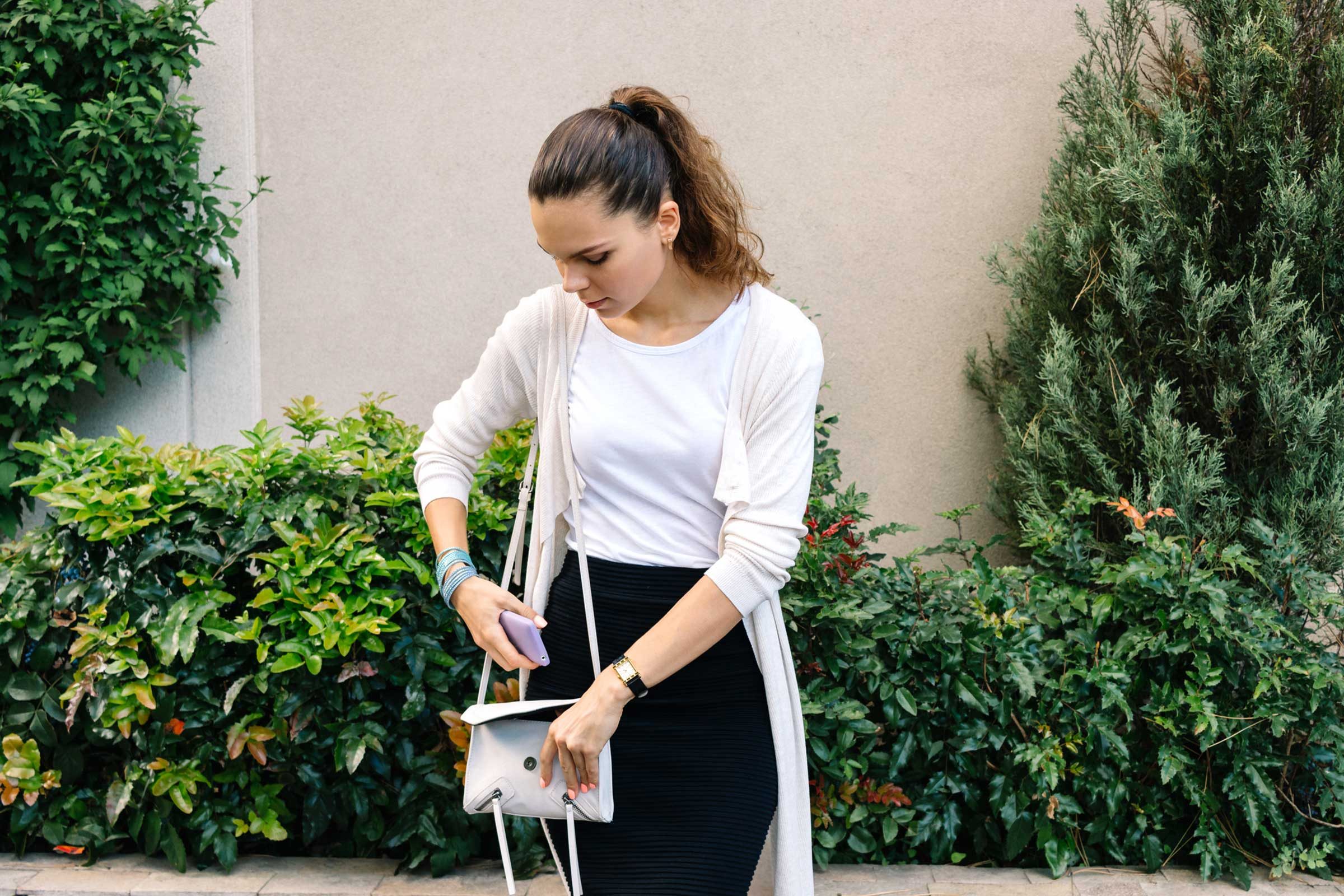
Reward yourself while encouraging others
If friends are also looking to step back from social media, vow to support each other along the way. “Make a pact with your friends or loved ones to turn off phones when out to dinner, or hanging out,” recommends Susan Antelis, MPS, a board-certified mental health counselor in New York City. “Put your phones in the middle of the table, for example, and the first one to break the pact, pays for dinner.” Another idea, says Antelis, is to make a deal with yourself: stay “clean” (off media) for a whole day or a whole weekend, and reward yourself with something not media related. “Positive reward strategies are very effective according to basic psychology.” Treat yourself to a mani or favorite coffee drink, for example. These are the social media posts that could get you fired.

Stay focused on YOU
“Staying intimate with social media on a daily or hourly basis can be viewed as a form of ‘social’ addiction without really being social; it satisfies a basic human longing to be included,” says Antelis. “However, sometimes what other’s share and how they share it can cause unwanted reactions and backfire for some triggering pangs of jealously, anger, or unworthiness. This might mean that some break time away is needed until your situation resolves.” Instead of focusing on what other’s post that negatively affects you, concentrate on posting things that make you happy in the here and the now, such as an inspirational quote, advises Antelis. “This can help you shift away from focusing on what you do not have, to what you do have in your life that is worthwhile.” It will help you remember that sense of empowerment and community that social media meant to provide you with, in the first place, she adds.
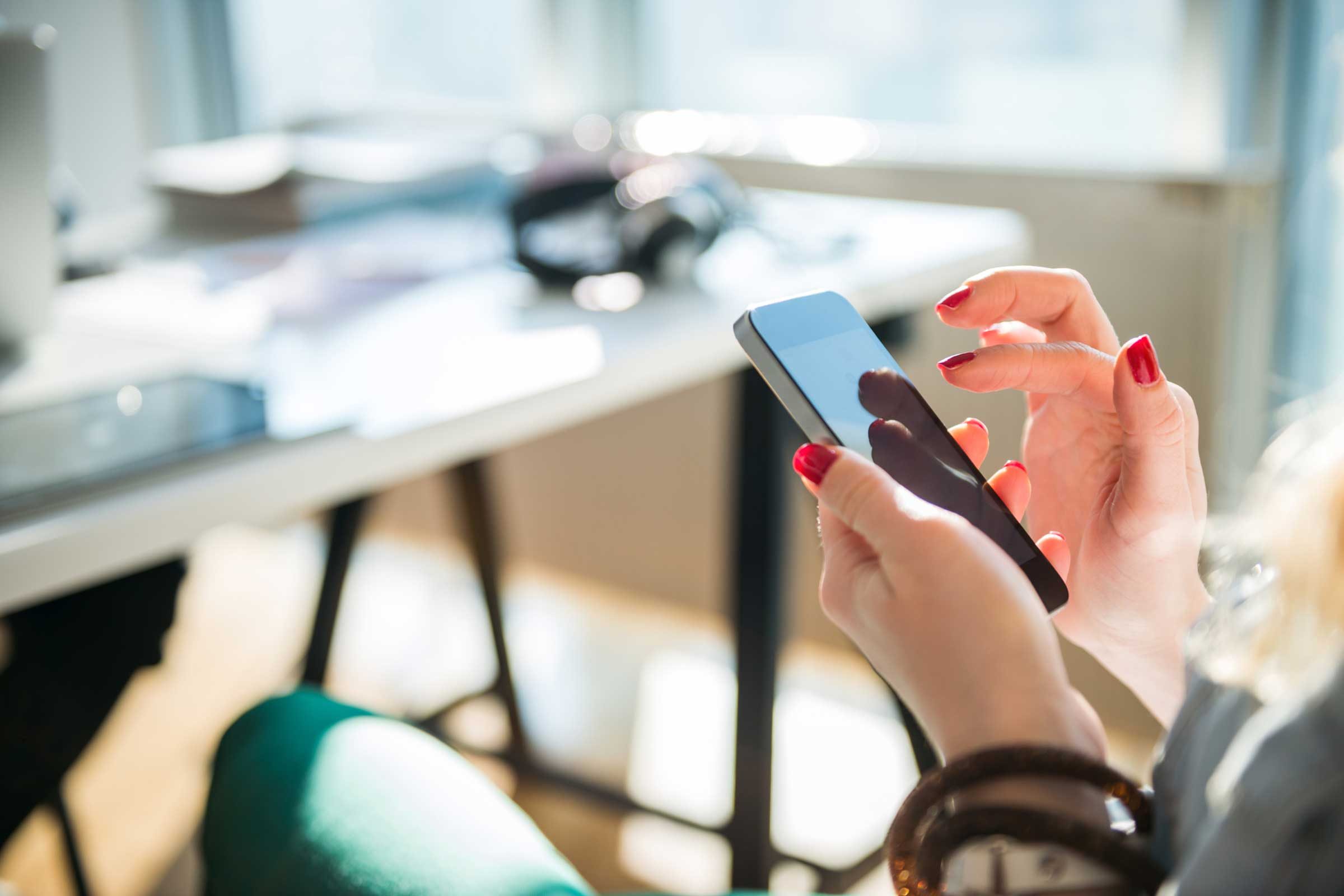
Remember: it’s not all entirely true
“Someone’s social media profile is effectively their ‘edited showreel’,” says Jodie Cook, social media specialist. “Images are edited and updates are positive and generally depict success, happiness, and milestones and rarely focus on anything else.” If you’re not careful, you might be fooled into thinking that everyone is having a better, happier, more prosperous time than you, whether it’s true or not. According to Cook, if social media updates make you feel inferior, beg off social media, but also remind yourself what you see is quite often a distorted and heavily edited “reality.” These are the photos you should never post on social media.
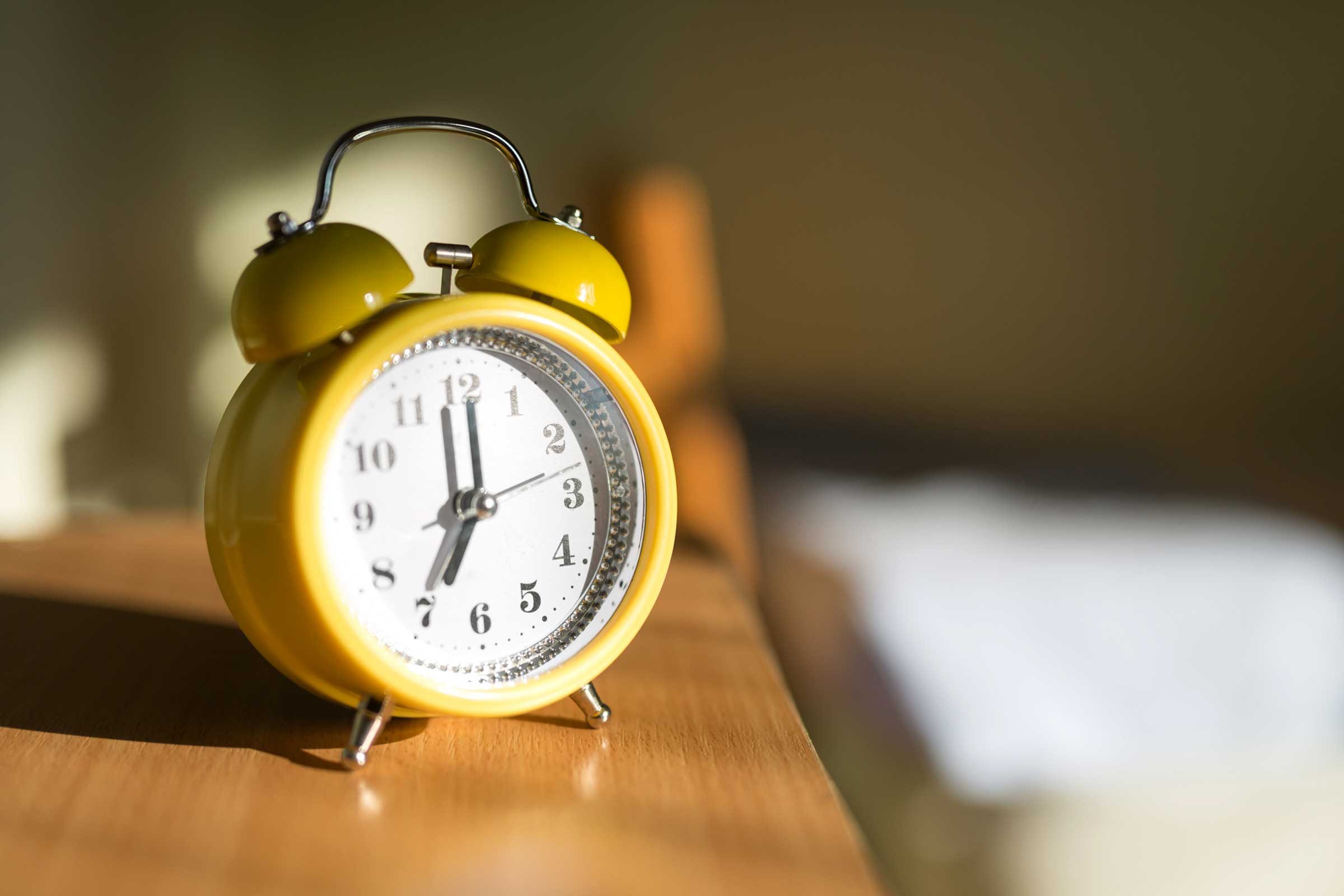
Use an alarm clock—a real one
If you use your mobile phone as your alarm clock, it’s time to invest in an actual alarm clock. That way, as soon as your phone alarm goes off, you won’t jump up, grab your phone, and immediately log into Facebook or Instagram. Think about the precious minutes of sleep you lose by doing so anyway! Do you want to start your day with updates from friends that make you—even inadvertently—feel unhappy? Probably not. Wake up with an actual alarm clock, stretch, take a leisurely shower, feed the dog, get dressed, really enjoy that morning up of coffee, before you check your phone. You’ll be amazed at how much happier you are, and how many more tasks you’ll complete in the a.m., when you’re not scrolling through social media before the sun rises.
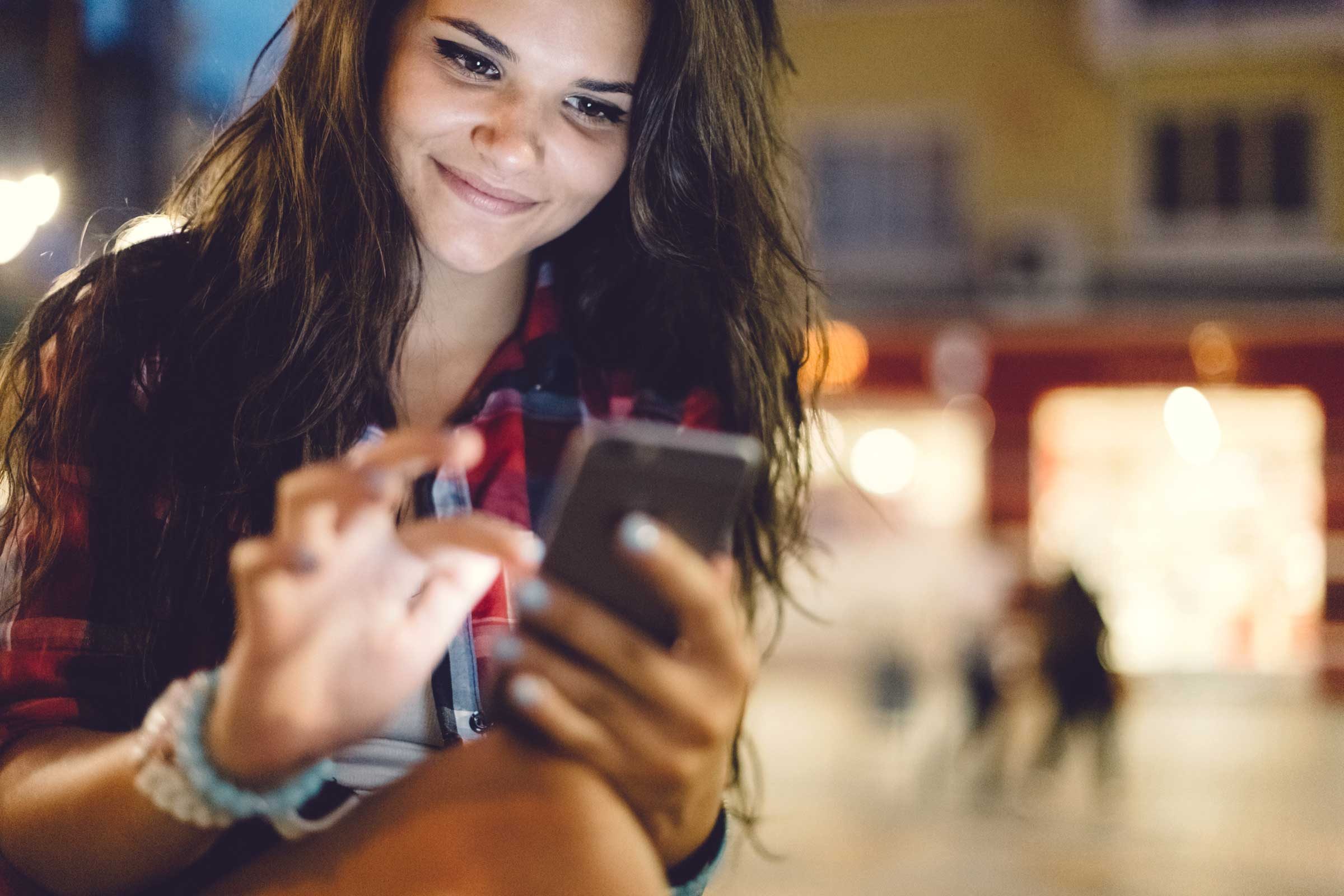
Respond off-line and disable your notifications
Use social media only if you really, really need to—to check the spelling of one’s name, for example, or look up the name of a restaurant someone recently raved about. The less frequently you log into social media because you’re bored, then the more you’ll get accomplished and (hopefully!) the happier you’ll feel. If it’s someone’s birthday, wish them a “Happy Birthday” via text message or email, or better yet, call them. Or, adjust your phone’s settings, and remove certain apps, like Facebook messenger, so you don’t receive constant notifications on your phone every time there’s social media activity. That way, you’re less prone to mindlessly scrolling through social media and getting caught up in drama and unimportant affairs. While you’re at it; at work, put your cell phone in a bag or briefcase, then into your desk drawer, so you can focus on the job at hand, and be a better, more productive employee. Next, check out the things that could happen if you quit social media.